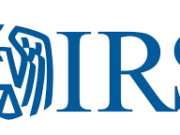Kimberley Strassel published an interesting column in the Wall Street Journal, IRS Targeting: Round Two, discussing the IRS rule changes proposed several weeks ago. Arguing that the rules are designed to impact the same groups targeted for additional IRS scrutiny, Ms. Strassel writes:
“The committee has reviewed thousands of tax exempt applications,” says House Ways & Means Chairman Dave Camp. “The new regulation so closely mirrors the abused tea-party group applications, it leads me to question if this new proposed regulation is simply another form of targeting.”
Here’s how it works. To get or keep tax-exempt status, 501(c)(4) organizations must devote a majority of their work to their “primary” social-welfare purpose. Most tea party groups were set up with a primary purpose of educating Americans on pressing problems—the size of government, the erosion of the Constitution—and did so mainly via nonpartisan voter guides, speakers forums, pamphlets or voter-registration drives.
The article continues:
What the proposed Treasury/IRS regulation would do is to re-categorize all these efforts as “political activity”—thereby making it all but impossible for tea party groups to qualify for 501(c)(4) status. Say an outfit’s primary purpose is educating voters on our unsustainable debt, which it does mainly with a guide explaining the problem and politicians’ voting records. Under the new rule, that guide is now “political activity” (rather than “social welfare”), which likely loses the group tax-exempt status.
The rule, in other words, is not designed to provide helpful “guidance” on allowable activities. It was designed, rather, as Mr. Camp explains, “to put tea party groups out of business.”
Adding insult to injury, Ms. Strassel also points out that the rules would only apply to 501(c)4 groups, rather than to all non-profits. The proposed rules suffer from significant flaws, and, if enacted, will continue to drag the IRS into the business of regulating political speech. CCP recently submitted comments and a draft rule to the IRS, pointing out that it makes sense for the IRS to harmonize its rules with those of the Federal Election Commission’s and for the IRS to adopt the Buckley definition of political activity.














